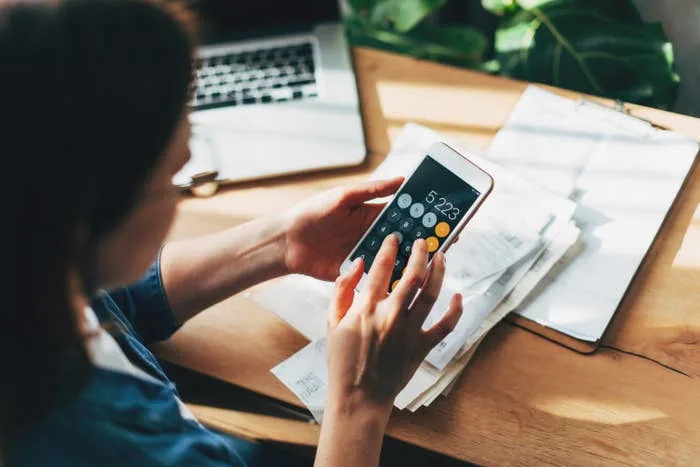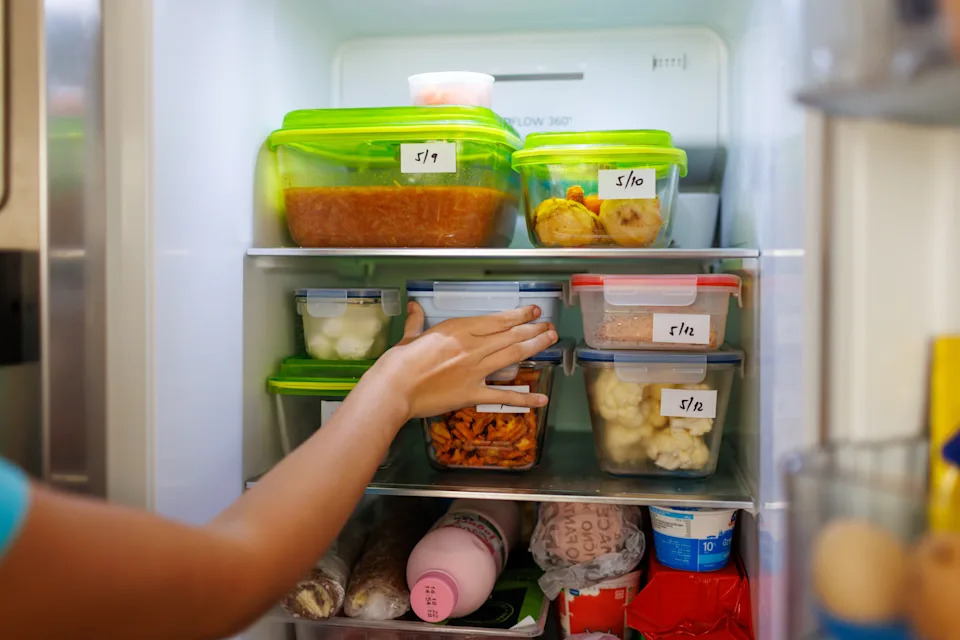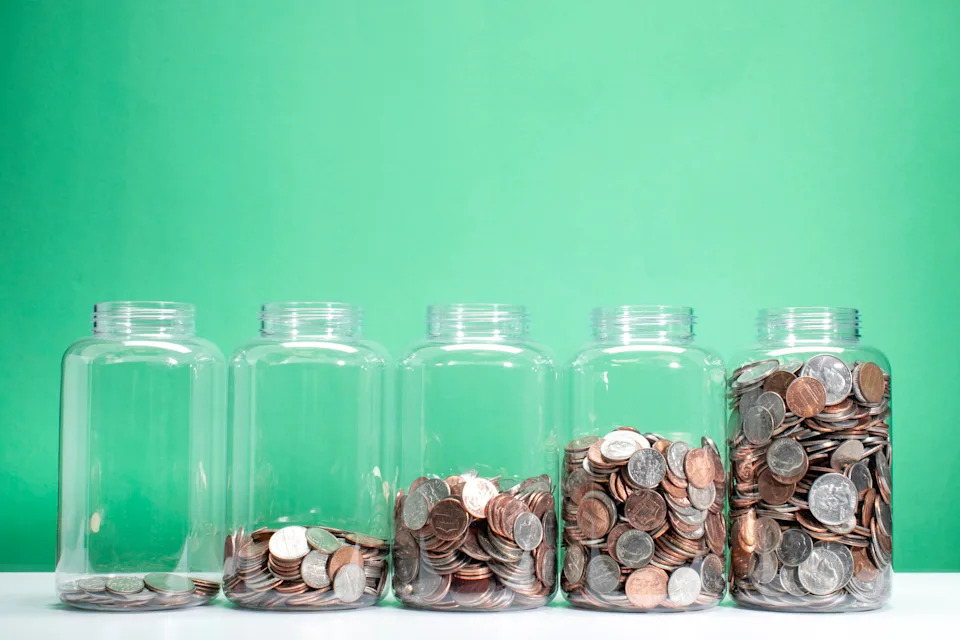Saving money these days is no easy task, so I’m always on the lookout for practical habits to try. Recently, frugal people on Reddit shared their most “underrated” money-saving habits, and it gave me a lot of food for thought. Here’s what they had to say:1. “I multiply supposedly ‘low monthly costs’ by 12. The yearly cost is often a wake-up call that I don’t need something.”
Kseniya Ovchinnikova / Getty Images
2. “Our prepaid cellphone plan saves us $100 a month from what we were paying.”
“Prepaid cellphone plans are a life changer. I switched to one in November of last year, and I pay $15/month for my phone now. I plan on purchasing their annual plan this November once my promo period is over and eliminating my monthly payment altogether.”
3. “Using the public library. Many now offer free streaming services, audiobooks, and ebooks.”
“And newspaper subscriptions! We have access to the New York Times and the Washington Post via the DC Public Library.”
4. “Cooking once and eating many times. For example, I make multiple servings of rice and freeze some for later. Or teriyaki chicken, make extra and freeze it for later. Then, when we don’t have time to fix dinner, I can put the two together, and we have a meal instead of grabbing a quick bite out on the run.”
Vgajic / Getty Images
5. “Buying or making snacks, meals, and drinks ahead of time for road trips.”
“I did this on my last road trip, and it was awesome. I did it partly to save money, but also didn’t like the thought of eating fast food and sitting in a car for hours. I made sandwiches, cut up some veggies, brought my own iced tea and water, and brought some chips if I wanted a non-healthy snack. I know some people thought I was being a bit cheap, but I felt so great on that drive that I wouldn’t do it another way next time.”
6. “Using actual dish towels instead of paper towels.”
7. “Shop from your pantry first, and sales flyers second. Plan the menu around what you have already and what’s on sale rather than what you want to eat any given week. If you really need variety in your diet, learn the sales patterns and freeze meat as it goes on sale to keep up a good rotation.”
Daniel De La Hoz / Getty Images
8. “Buying things second-hand from Facebook Marketplace. Also getting free stuff from the free local Facebook groups. I got so many helpful things over the years!”
9. “I label the date I open anything that should be used within seven to 10 days after opening. I freeze portions of leftovers the same day. I meal plan for shopping and for items to be used up. I have minimal food waste.”
10. “Pay yourself first! This is the only way to ensure you will have money at retirement. Take money out of your check, or have your employer do this, and set it aside to grow!”
Pm Images / Getty Images
“I have my paycheck split up so a chunk gets taken out to go to an account that I largely pretend doesn’t exist until something bad happens. It’s helped a lot.”
11. “Get at least a basic tool kit. That, along with YouTube and Amazon, allows you to learn how to fix basic things instead of calling someone or throwing it away and buying another. I just fixed the wheel on my suitcase instead of spending on a new one.”
12. “Track your expenses in a spreadsheet. Before even budgeting, track. The discipline of tracking will result in unconscious budgeting. For me, the savings started adding up, and visualizing my spending helped to make more frugal decisions.”
13. “Ordering groceries online. I’m guilty of impulse buys, and simply ordering groceries for pickup saves me $20+ each time.”
Yurou Guan / Getty Images
“This is what I do! You can play with the cart to stay within your budget, and you never set foot in the store and get tempted.”
14. “Decluttering and cleaning. It reminds me I have enough already, and what things looked like new, to curb the shopping urges.”
15. “I am too poor to be cheap, so I purchase the best quality I can afford of whatever it is I need. Shoes, tools, kitchen equipment, whatever, the best I can afford, and I’m prepared to spend on quality. When I first set out at 20, I bought a cheap can opener because I thought I was saving money. I had to replace that thing four times before I decided to invest in the BEST can opener two years later at four times the price. It’s 45 years on, and that thing is still functioning as new.”
“Cheap pots were replaced with good-quality pots, cheap scissors with the best scissors, and so on.
Maintenance on the things you own saves money. Learning how to repair the things you own saves money. Planning ahead saves money. Buying the best quality secondhand saves money. You can have all the things, just buy the best, and take care of it.”
16. “This is just common sense, but at the end of the school year, I immediately put things my kids can use next year in a bin so they are not lost and easy to find when school starts. Things like a calculator, a Chromebook strap, a wireless mouse, etc. And any old supplies that are still usable go in there for ‘home’ projects. Like colored pencils, etc. I know so many people who replace those things EVERY year, and it just floors me.”
Natalia Lebedinskaia / Getty Images
17. “If you want something, don’t get it immediately (unless it’s an actual need to stay alive and healthy). Put it on a list on your phone or a notepad and wait a minimum of seven days (I often do 30). Write down the amount too. By waiting, you get time to forget about it, because very often you don’t actually need it, and you do forget it. You saw something shiny or on sale, and you wanted it. But do you need it? Will it actually improve your quality of life, or are you distracting yourself from something? If you still want it and have thought about it after your set time, then go get it (if you can afford it, of course). I do in maybe one out of 20 items.”
“After a couple of months, have a look at what you decided to buy and not, and how much money you didn’t spend. I have saved so much money doing this.
Never buy what you can’t afford. Save up (except for a home, maybe a car, and, for the US, medical bills).
Also, there is always a next sale. You didn’t save money if you bought something you didn’t intend to on sale.”
18. “I have furnished 90% of my home from estate sales. I buy quality stuff only, and when I get tired of my things, I sell them and usually make a profit. We also drive around on garbage night and salvage anything we can sell. I’m usually able to fix up things and make extra money.”
19. “Unsubscribe and unfollow every place you love to shop at. Even if they send you deals. The best deal is not to go there, and if they don’t slide into your feed or inbox, you’re much less likely to even think about going there.”
In8finity / Getty Images
20. “If I’m going somewhere that is under a mile away and it is safe to do so, I’m going to walk it instead of driving over. If it’s under say 30 minutes by bike and also safe to do so, then I’m going to take my ebike instead of driving. I drive so much less because of this. Because of that, as well, my vehicle expenses are so much lower than my peers. Other costs become so much cheaper as well.”
“If it is safe or feasible to do so, drive less and walk/bike/transit more for transportation needs. Vehicles are often the second most expensive thing in my area after housing — people drop SIX figures on a vanity truck to keep up with the Joneses, then drive it every day to ‘get the most out of it.’ That simply isn’t needed, and I’m frugal as hell with my transportation so that I can turn around and spend that money on things that I like. Like recreational travel.”
21. “Meal prepping and meal planning. And before you go grocery shopping: take stock of everything you already have (like rice, spices, etc.) and make sure you take them off your grocery list. Try to use things up before they go bad by centering the next meal around the expiring items.”
22. “I use fans in my bedroom, so I don’t have to run the AC as much or as long. Doing that alone has saved me almost $50 a month on the electric bill. I have also developed a habit of unplugging anything that draws power when it isn’t actively being used. For example, I unplug the microwave. I calculated that I could save $232 a year if I saved 63 cents a day on the little things. When I leave the house to go shopping, I unplug as much as I can. I’m gone, so it makes no sense to leave the power vampires plugged in.”
Ponywang / Getty Images
23. “Realizing that many of the people you know who often have newer or nicer things (cars, clothes, purses, etc.) are often in crazy debt. Meanwhile, you might not have all the fancy stuff, but you’re living within your means, which is better in the long run.”
24. “Water conservation. I do the ‘if it’s yellow…’ thing. I save the cold water that runs before the hot. I save gray water and use it in my garden. I’m ruthless about efficient dishwasher loading and running. I build laundry loads in layers like a pint of Guinness for optimal use of water and space, etc. I live in a desert with a dwindling aquifer; water isn’t cheap or renewable here. I’ve reduced my water bill by nearly 40%.”
25. “Buy Christmas presents all year long, that way you can score REALLY good deals AND get most of your Christmas shopping done early, thus avoiding the holiday stress. Note that this doesn’t work as well if the gifted individual is a child (sizes and/or interests change FAST) or the gift is perishable.”
Coolpicture / Getty Images
26. “Keeping a meal on the ready in the freezer so there’s no temptation to stop for fast food heading home after work.”
27. And finally, “Enjoy your four walls and utilities, aka get content with spending time at home.”
Daniel De La Hoz / Getty Images
“Hosting friends and visiting them in their homes is also affordable!”
“So underrated. Our parents kept cake and decaf coffee handy for guests who would drop by a few times a week. Wish society was like that more now.”
Do you have a frugal habit that you swear by? Tell us all about it in the comments or via the anonymous form below:

